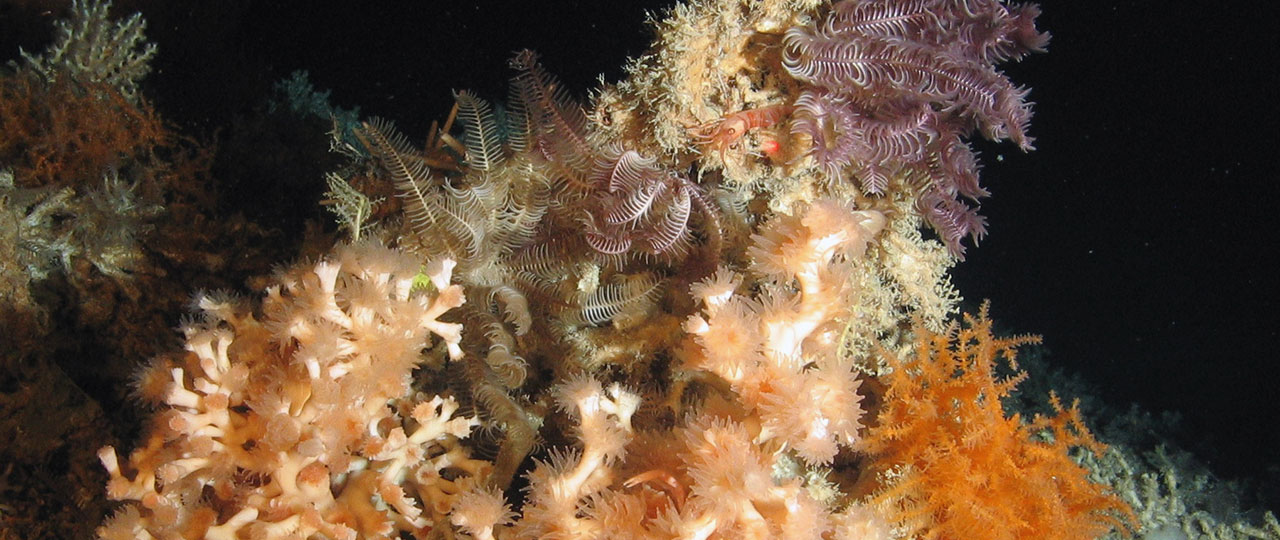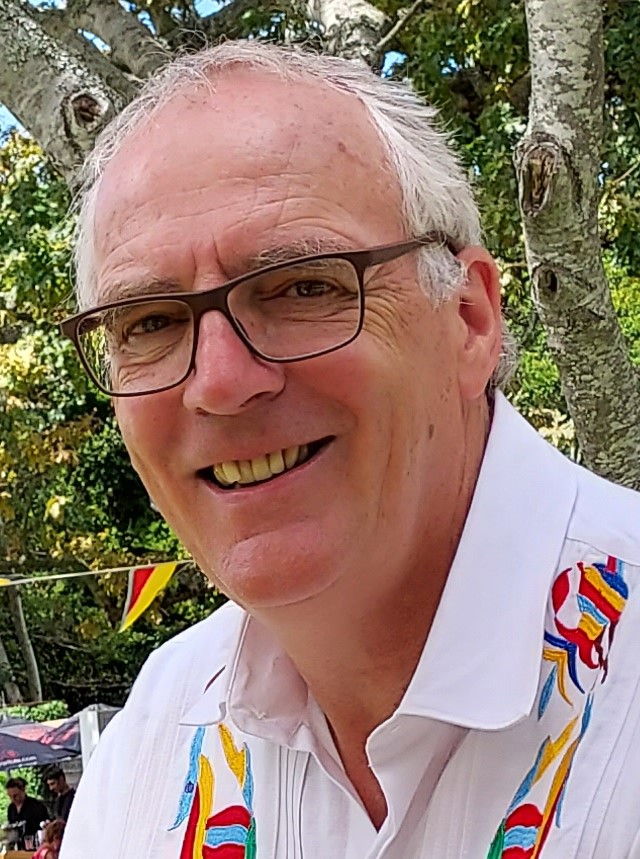Marine Sedimentologie
Professur
Das Themenspektrum in unserer Arbeitsgruppe reicht von Sedimentationsprozessen Þber Kaltwasserkorallen-Ãkosysteme bis zur Rekonstruktion mariner Umweltbedingungen in der Vergangenheit (PalÃĪozeanographie). Um vergangene Klima- und UmweltverÃĪnderungen beschreiben und vor allem auch verstehen zu kÃķnnen, benutzen wir nicht nur die marinen Sedimente als PalÃĪoarchive, sondern wir beziehen auch die relevanten Sedimentationsprozesse ein, die letztendlich diese PalÃĪoarchive formen. Ein Schwerpunkt liegt dabei auf den Kaltwasserkorallen-Riffen in der Tiefsee, die direkt die Sedimentationsprozesse in ihrem Umfeld beeinflussen. Aus diesem Zusammenspiel kÃķnnen bis zu 300 m hohe KorallenhÞgeln resultieren, die uns Einblicke in die geologische Entwicklung dieser Ãkosysteme ermÃķglichen.

Arbeitsgebiete
Neben dem Atlantik und seinen Randmeeren arbeiten wir auch im SO- und SW-Pazifik und im westlichen Indik.Methoden
Sedimentbeprobungen (MeBo, Schwerelote, Kastengreifer); Untersuchung von Kaltwasserkorallenriffen (Einsatz von Tauchbooten und -robotern(ROVs → Beprobung und Videokartierung); hydro-akustische Kartierungen des Meeresbodens und seines Untergrundes; Anwendung palÃĪozeanographischer Proxies; Computer-Tomographie von Sedimentkernen; Datierungen; Modellierung
Aktives Tiefsee-Kaltwasserkorallenriff vor Irland (880 m Wassertiefe).
Prof. Dr. Dierk Hebbeln

1988 Diplom Geologie/PalÃĪontologie, UniversitÃĪt Bremen; 1991 Promotion UniversitÃĪt Bremen, 2002 Habilitation UniversitÃĪt Bremen
Anstellungen/ Aufenthalte:
seit 1988 UniversitÃĪt Bremen,
seit 2006 Professor in Bremen,
Leiter der MARUM Research Academy
Forschungsgebiete:
Sedimentationsprozesse an OzeanrÃĪndern, PalÃĪozeanographie im QuartÃĪr, FunktionalitÃĪt und Langzeitentwicklung von Kaltwasserkorallen-Ãkosystemen
Tel. +49 421 218 - 65650
dhebbeln marum.de
marum.de
Marum - Zentrum fÞr Marine Umweltwissenschaften
der UniversitÃĪt Bremen
Leobener StraÃe
28359 Bremen
Prof. Dr. Dierk Hebbeln

Marum - Zentrum fÞr Marine Umweltwissenschaften
der UniversitÃĪt Bremen
Leobener StraÃe
28359 Bremen
Tel. +49 421 218 - 65650
dhebbeln marum.de
marum.de
der UniversitÃĪt Bremen
Leobener StraÃe
28359 Bremen
Tel. +49 421 218 - 65650
dhebbeln
 marum.de
marum.de
